Providing the best diet for animal health is key for pet owners. Every pet, whether a dog, cat, puppy, or kitten, has special needs. Knowing what food to give them helps keep them healthy.
Choosing between a homemade diet and commercial pet food is important. A good diet should be balanced and meet the specific needs of each type of animal. This involves understanding veterinary nutrition and natural ingredients for holistic care.
Key Takeaways
- Pets have unique nutritional needs based on their species, breed, age, and activity level.
- A balanced, species-specific, and complete diet is essential for maintaining animal health.
- Both homemade and commercial pet food options can provide high-quality nutrition if properly formulated.
- Consulting with a veterinarian or animal nutritionist is crucial when transitioning to a new diet.
- Monitoring your pet’s response to diet changes and adjusting as needed is important for their well-being.
Understanding Pet Nutritional Needs
Pets, like dogs and cats, have different dietary needs. Dogs thrive on a high-meat diet but can also eat plant foods. However, cats need meat for complete nutrition because they are true carnivores, not needing carbohydrates.
Differences Between Species
Dogs have a broader diet, needing carbs, proteins, and fats for energy and health. Yet, cats require animal proteins much more, with less ability to digest carbs. This fundamental difference shapes their food needs.
Essential Nutrients for Dogs and Cats
Both dogs and cats need proteins, fats, vitamins, and minerals to stay healthy. The amounts and sources of these nutrients differ. Cats, for instance, need more of certain amino acids from animal proteins. Additionally, each species metabolizes vitamins and minerals differently.
Optimal Nutrient Ratios and Caloric Requirements
Nutrient needs and calorie requirements vary based on age, health, and activity level for dogs and cats. Young animals need more energy for growth compared to adults. Older pets might need special diets to match their changing body requirements. Knowing these factors helps maintain your pet’s health.
| Nutrient | Dogs | Cats |
|---|---|---|
| Protein | Able to utilize a variety of protein sources | Require high-quality animal-based proteins |
| Carbohydrates | Can metabolize carbohydrates for energy | Have limited ability to metabolize carbohydrates |
| Fats | Important for energy and nutrient absorption | Crucial for energy and nutrient absorption |
| Vitamins and Minerals | Require a variety of essential vitamins and minerals | Require specific vitamins and minerals, often at higher levels than dogs |
Formulating a Balanced Homemade Diet
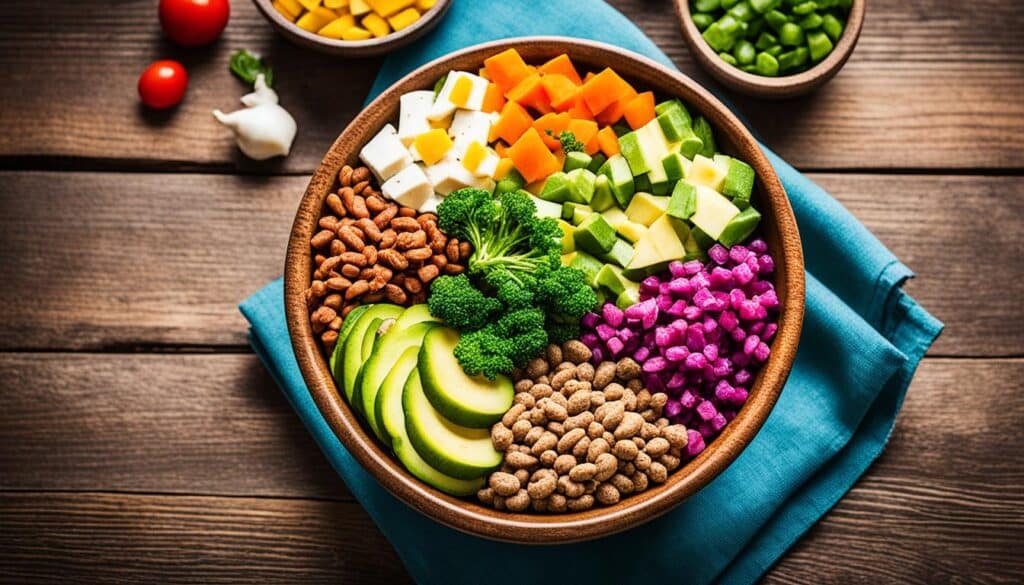
Creating a balanced diet for your pet might seem tough. But, by using recipes by animal nutritionists, or those that meet the animal’s nutrition needs, you can do it. These nutritionist-approved recipes make it easy to give your pet the essential minerals and vitamins they require.
Following Nutritionist-Approved Recipes
Homemade diets for pets should come from trusted sources. Recipes by animal nutritionists ensure your pet gets the right nutrition. These nutritionist-approved recipes offer the perfect mix of proteins, fats, carbohydrates, vitamins, and minerals. They make sure your pet receives balanced, species-specific nutrition.
Supplementing Essential Minerals and Vitamins
Even with a balanced diet, pets might need extra essential minerals and vitamins. This is crucial for those with special needs or at risk of deficiencies. A vet or animal nutritionist can suggest which supplements to add. They can help you provide the best sources of these crucial nutrients.
| Nutrient | Importance | Common Deficiency Symptoms | Good Sources |
|---|---|---|---|
| Calcium | Supports strong bones and teeth, muscle function, and nerve transmission. | Muscle weakness, lethargy, bone fractures, and poor dental health. | Dairy products, leafy greens, and supplements. |
| Vitamin A | Crucial for vision, immune function, and healthy skin and coat. | Night blindness, poor wound healing, and dry, flaky skin. | Liver, egg yolks, and orange/yellow vegetables. |
| Vitamin B12 | Supports red blood cell formation, nervous system function, and energy metabolism. | Lethargy, poor appetite, and neurological issues. | Meat, poultry, eggs, and dairy products. |
| Vitamin D | Regulates calcium and phosphorus levels for bone health. | Bone pain, muscle weakness, and decreased bone density. | Fatty fish, egg yolks, and sunlight exposure. |
By carefully creating a homemade diet, using approved recipes, and adding necessary supplements, your pet can get everything they need to be healthy and happy.
Benefits of Homemade Pet Diets
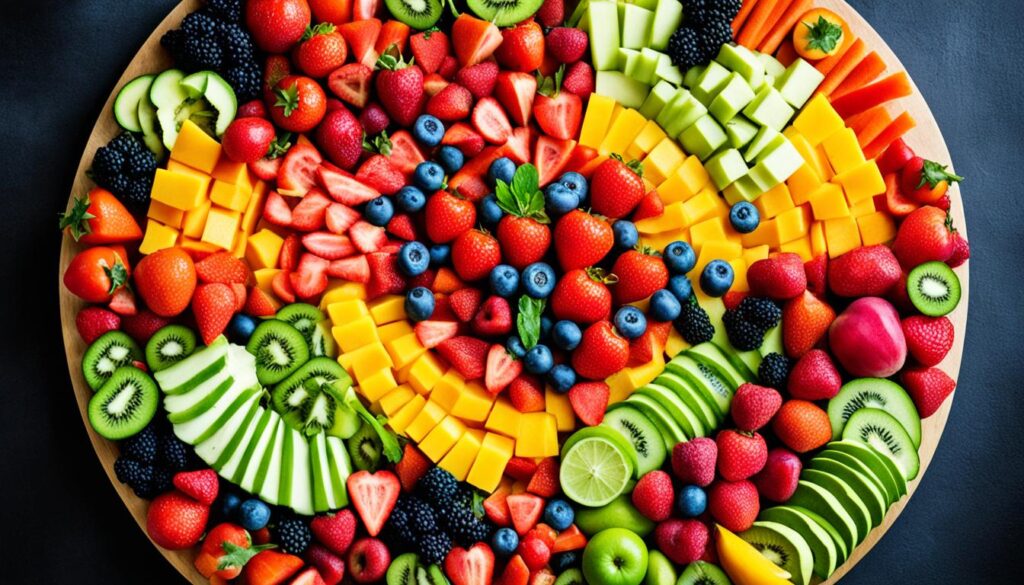
Feeding pets homemade diets is key for their health, say supporters. Using a range of fresh, whole food ingredients helps keep pets healthy. The benefits of these diets include knowing the food is fresh and wholesome. They also allow for extra healthy parts to be added. These non-essential or synergistic components boost the diet’s quality.
Fresh, Whole Food Ingredients
Making homemade pet food with whole foods is great for pets. It gives them a mix of wholesome, natural ingredients. Their coat becomes shinier and they have more energy. This happens because they get all the nutrients they need. Plus, the food is fresh, which can help with allergies and intolerances.
Improved Coat and Energy Levels
Adding fresh, whole food ingredients to pets’ diets is a game changer. Coats become nicer and they get more energy. This shows the food is better for them. This is because homemade food has the best nutrients and is free from fillers and artificial preservatives.
Risks and Precautions of Homemade Diets
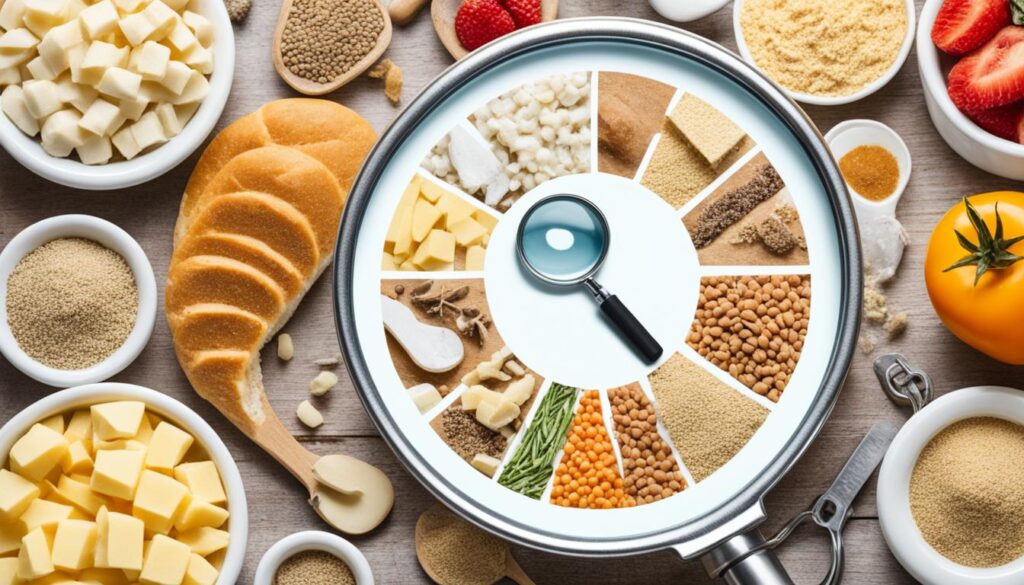
Homemade diets can offer many benefits to pets. But, it’s important to know the risks and take care. Making sure your pet’s diet is balanced and complete is not easy. getting it wrong can cause big problems. Pets need certain nutrients like calcium, phosphorus, zinc, magnesium, and iron. If they don’t get these, it can affect their health, especially when they are young or have special needs.
Nutritional Imbalances and Deficiencies
If a homemade diet doesn’t include variety of foods or lacks in vitamins and minerals, it could harm your pet. Problems can show up in many ways. Young pets might not grow well, and grown ones might get sick easier. It’s important to keep an eye on your pet’s diet and make changes as needed.
Food Safety and Bacterial Contamination
Making pet food at home can be risky if you don’t do it right. Using raw or undercooked ingredients in a dirty place can make the food dangerous. It can cause stomach problems, food poisoning, and spread antibiotic-resistant bacteria. Always handle and cook the food safely to protect your pet from these dangers.
Raw Meat and Bone Hazards
There’s a lot of talk about using raw meat and bones in pet diets. Some people think it’s great. But it can actually be quite risky. Bacterial contamination, intestinal obstructions, and lacerations are just some of the dangers. It’s best to avoid giving pets cooked bones, no matter what.
Minimizing Risks of Homemade Pet Food
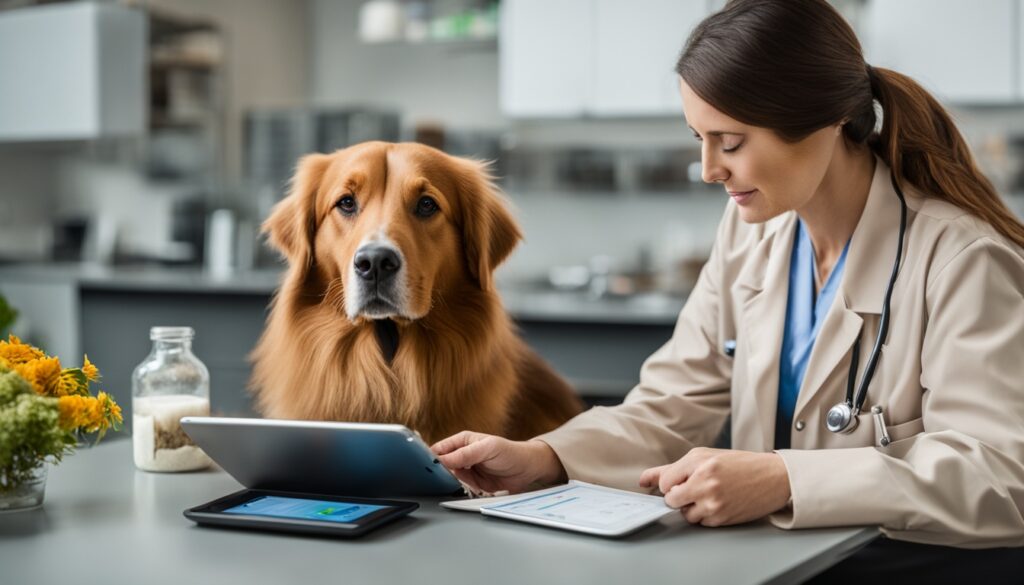
Making homemade food for your pets can be risky. That’s why it’s key to consult with a veterinarian who’s knowledgeable about animal nutrition. They can make sure the food meets your pet’s needs and guide you to trusted sources for recipes.
Veterinary Consultation and Monitoring
Having regular check-ins with a veterinarian is vital for pets on homemade diets. They’ll help ensure your pet gets the right nutrients. Plus, they can spot and fix diet issues and run tests to detect any health problems early.
Regular Health Checkups and Bloodwork
Along with checkups, it’s important to do regular bloodwork with your vet. This helps establish your pet’s health baseline and catch any issues early. Tests like radiographs, bone density, and tissue density may be done too, ensuring your pet’s diet is on point.
Best Diet For Animal Health
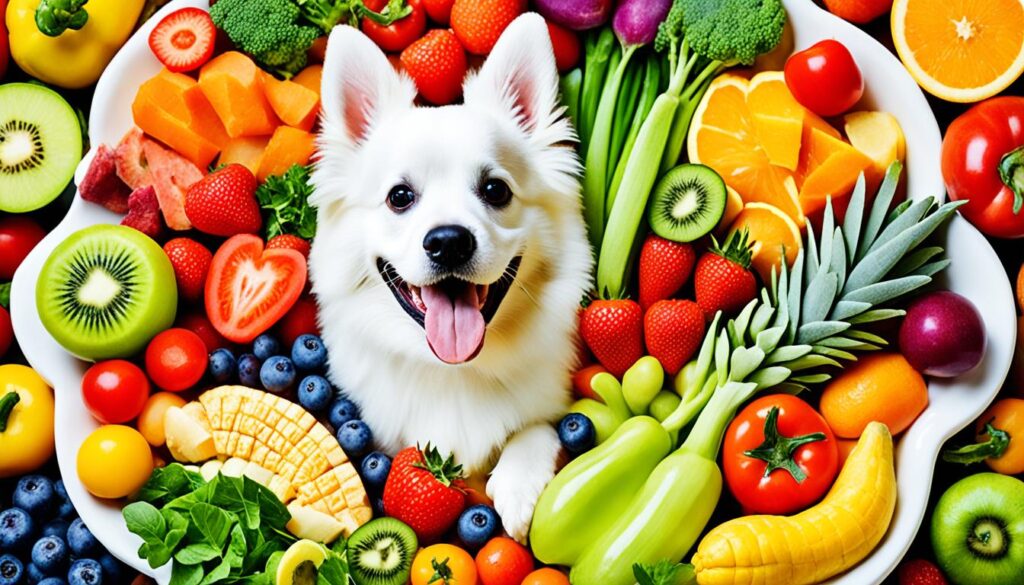
Making a diet that fits a pet’s exact needs can majorly improve their health. For example, pets might have symptoms like too much shedding, itching, or tummy issues. These could be because of food allergies, intolerances, or not getting the right nutrients. Making special diets at home can ease these problems.
Addressing Specific Dietary Needs
Pets with health issues or allergies need diets made just for them. Owners can work with a vet to find out what’s best for their pet. They might need to take out some foods, add more of certain nutrients, or adjust the amount based on the pet’s breed or age. A personalized diet can make a huge difference.
Improving Symptoms Through Nutrition
Many pet owners have seen big changes in their pets’ health by changing what they eat. These home-made diets can be great for picky eaters too. Making sure the food is right for the pet’s needs and tastes can get them eating better. This leads to better health overall.
Choosing Commercial Pet Foods
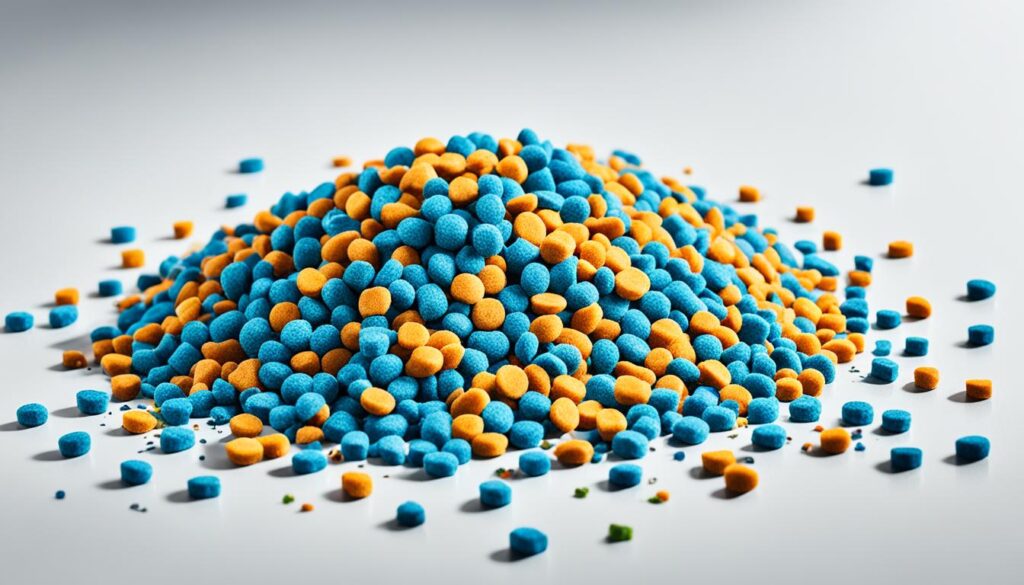
Homemade diets have their uses, but commercial pet foods have many high-quality options. They meet pets’ nutritional needs well.
Brands like Hill’s Science Diet, Royal Canin, and Purina are great choices. They have balanced formulas for pets’ health. These brands also offer premium and prescription diets, and formulas for certain life stages and breeds.
Premium and Prescription Diets
Top pet food brands really focus on research. They create diets for specific health needs. For example, they make diets for conditions like obesity, metabolic diseases, and renal failure. Pet owners should check with their vet to see if their pet needs a special diet.
Life Stage and Breed-Specific Formulas
Commercial pet food companies also make diets based on life stage and breed. They have food for senior, puppy, and certain breeds. This makes sure pets get the right nutrition they need at each stage of life.
Also Read: Unveiling the Explosive Psilocybe Cyanescens: Nature’s Mystical Fungi in 2023
Transitioning to a New Diet
Changing your pet’s diet should be slow, whether it’s a new homemade meal or store-bought. It’s best to take about 1 to 2 weeks for this change. But, if a vet advises differently, listen to them.
Gradual Introduction of New Foods
If your pet is a puppy or kitten, they need extra care during diet changes. Their bodies are still young and adjusting. You should mix the new food in slowly.
At first, add just a little new food to what they already eat. Over 1 to 2 weeks, add more new food and less of the old. This way, you help avoid digestive issues like diarrhea.
Monitoring Food Tolerance and Preferences
Keep an eye on how your pet is doing with their new food. They might not like it at first, but keep trying.
If they really don’t like the new food, look for other options. Make sure your pet stays a healthy weight. If they start eating too much or too little, the new food might not be right for them.
FAQs
Q: What is the best diet for companion animals’ health?
A: The best diet for companion animals, such as cats and dogs, includes a balanced and nutritious mix of kibble and raw food.
Q: What are the benefits of a raw diet for dogs and cats?
A: A raw diet can provide benefits such as shinier coats, improved stool quality, and potentially reduced sensitivity to certain ingredients.
Q: How can I ensure my pet’s food diet is complete and balanced?
A: Look for pet food products that have a nutritional adequacy statement from the Association of American Feed Control Officials (AAFCO) or undergo feeding trials conducted by veterinary nutritionists.
Q: Are there different types of food diets available for companion animals?
A: Yes, companion animals can be fed commercial dry food, raw diets, or a mix of both to meet their nutritional requirements.
Q: What organizations regulate the quality of animal foods in the US?
A: The USDA and the AAFCO set standards for pet food manufacturers to ensure the safety and quality of food products for pets.
Q: Why is it important to evaluate my pet’s diet on a regular basis?
A: Regular evaluation of your pet’s diet can help ensure it meets their nutritional requirements and identify any sensitivities or issues that need to be addressed.
Q: How can I verify the impact of my pet’s diet on their health?
A: Monitoring changes in your pet’s coat, stool, energy levels, and overall health can help you assess the impact of their diet and make adjustments as needed.
Source Links
- https://www.sheltermedicine.com/library/resources/nutritional-recommendations-for-shelter-animals
- https://www.ahofstatesville.com/services/dogs/dog-nutrition
- https://vcahospitals.com/know-your-pet/nutrition—home-made-diets




